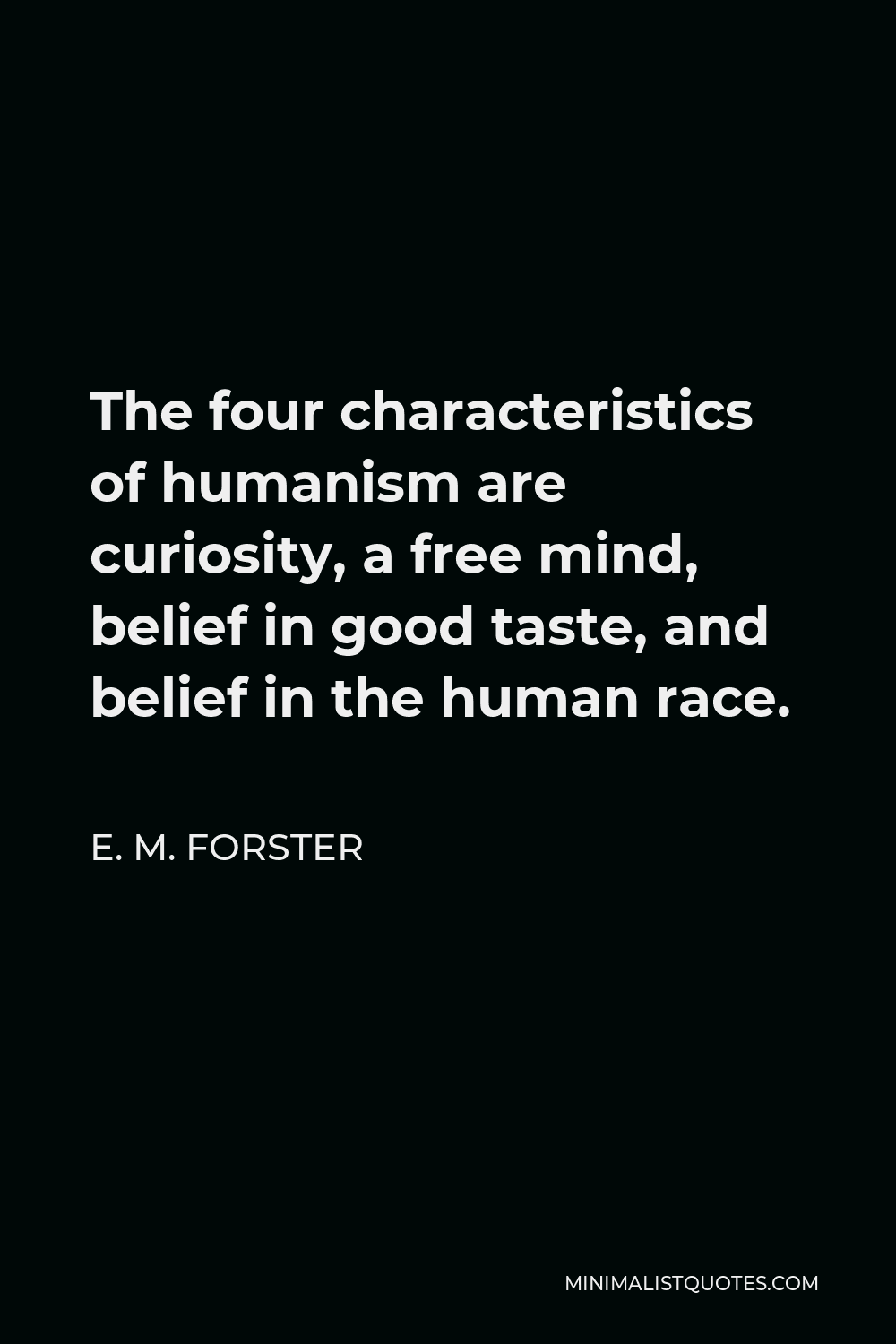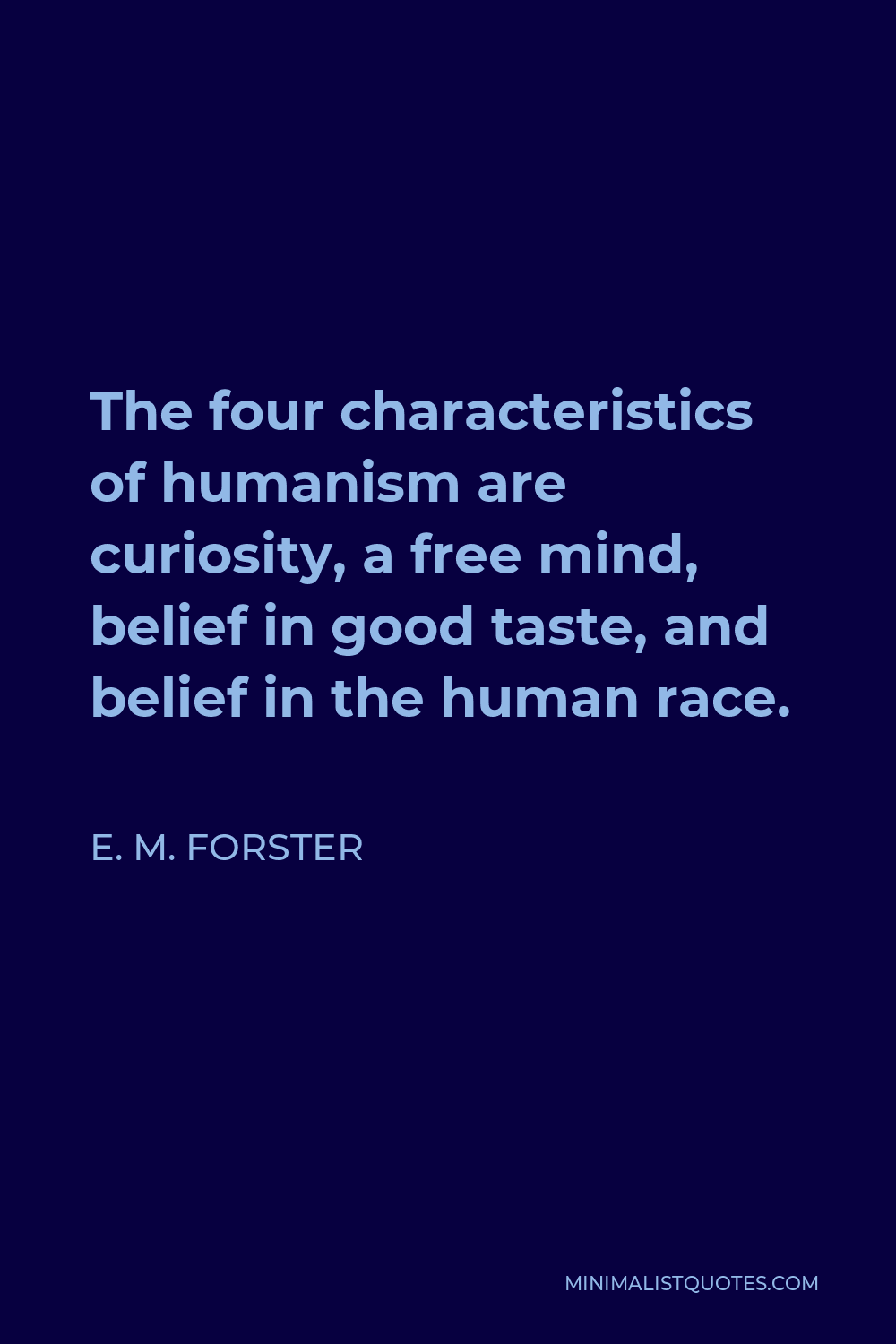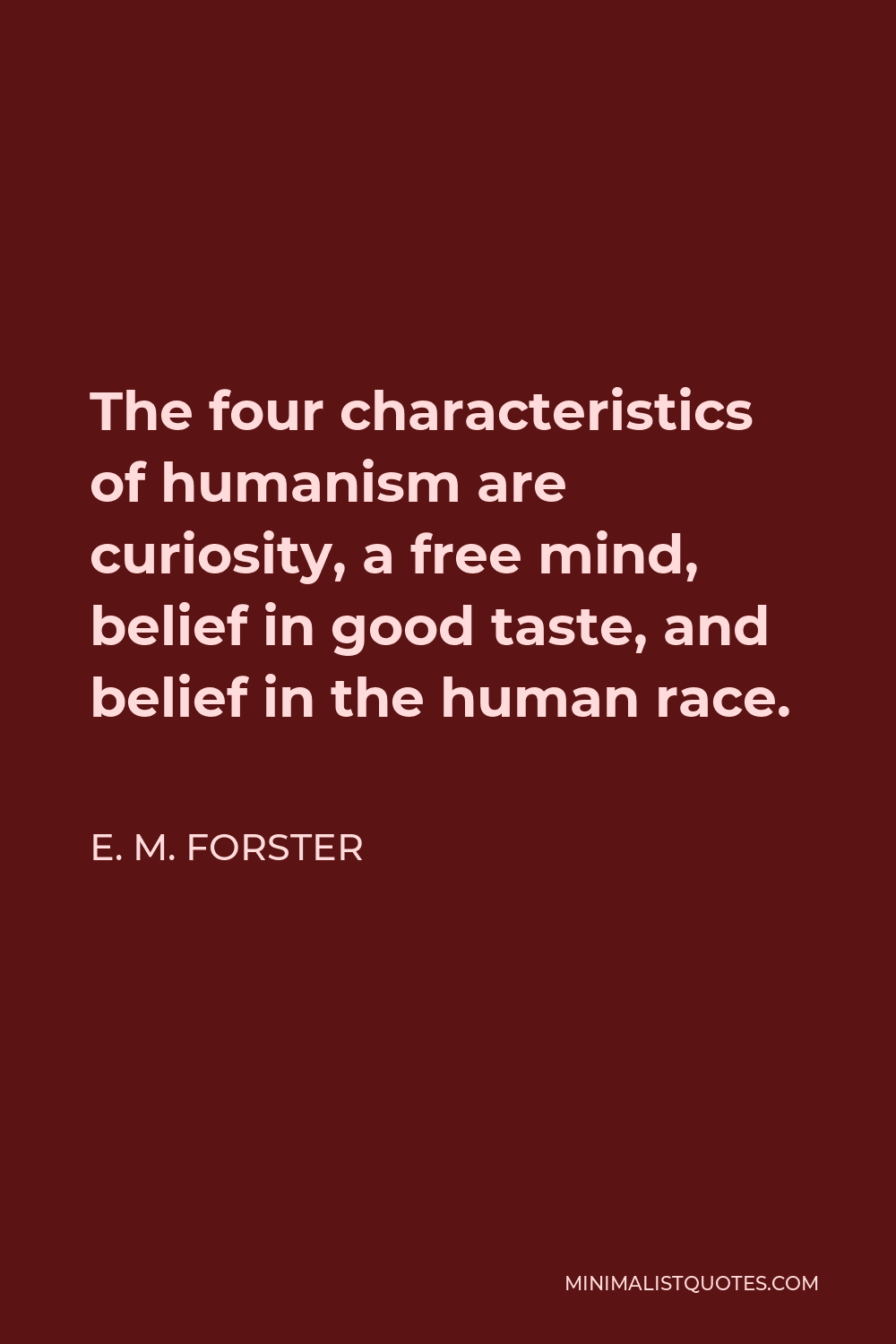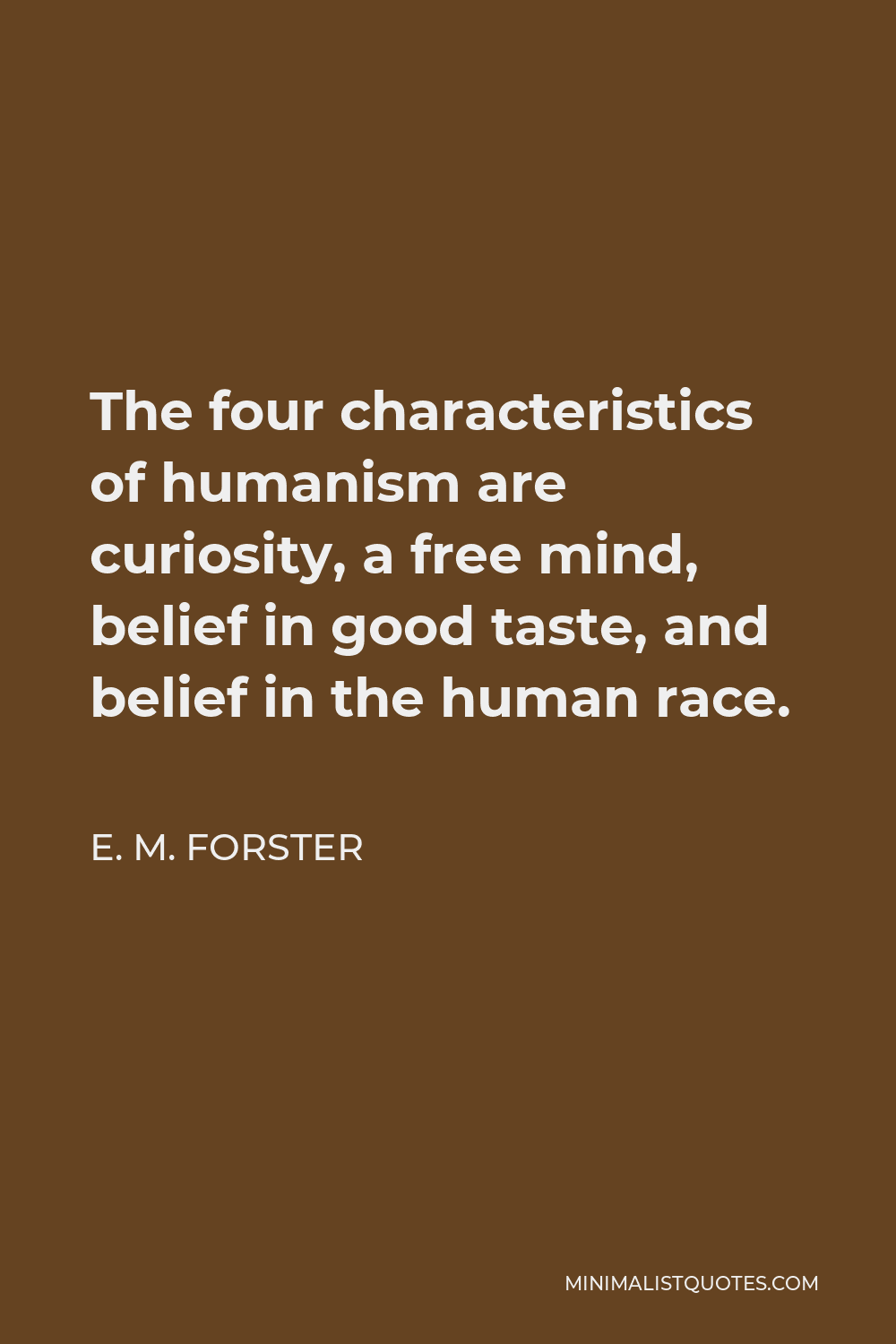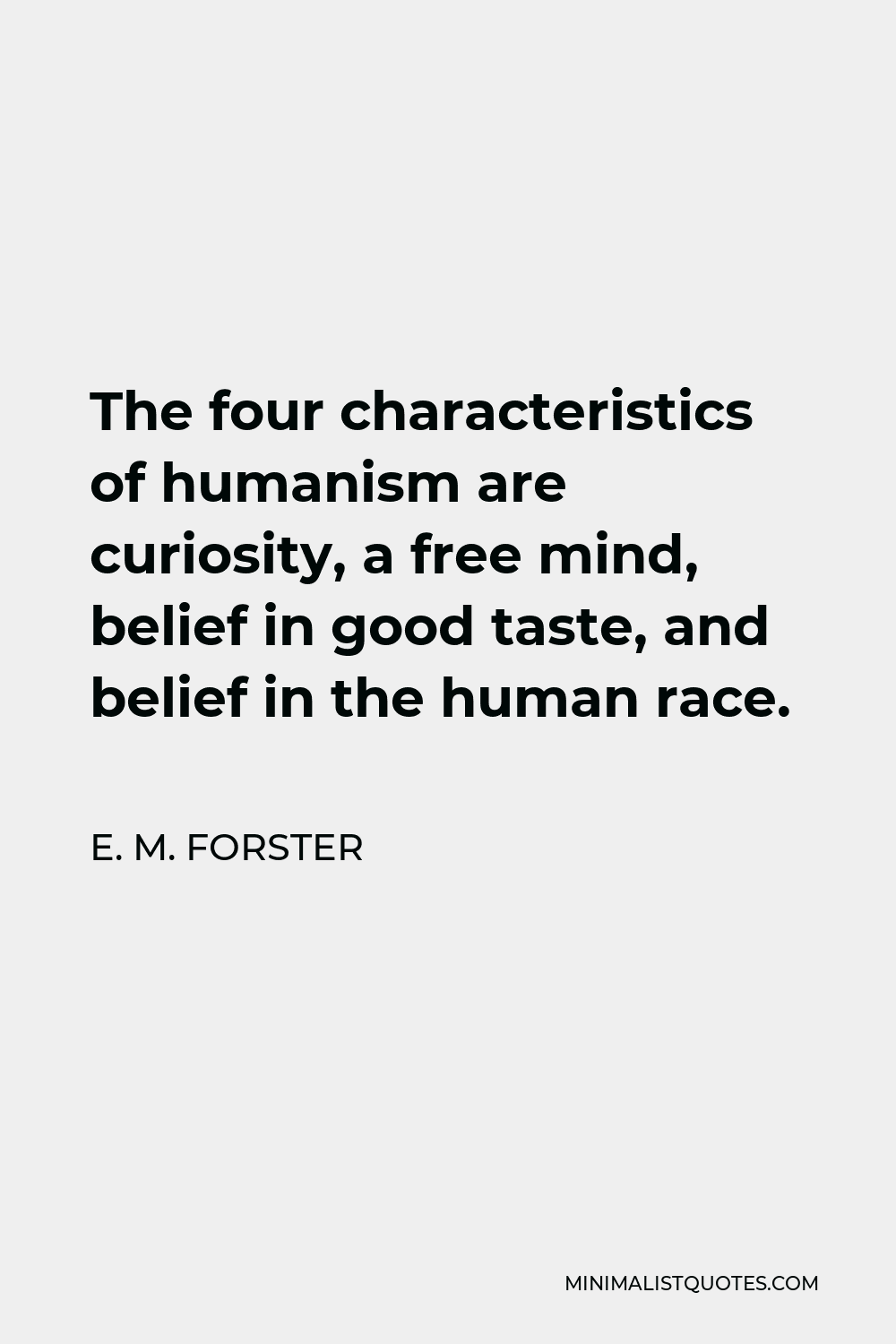We move between two darknesses.
E. M. FORSTERThe four characteristics of humanism are curiosity, a free mind, belief in good taste, and belief in the human race.
More E. M. Forster Quotes
-





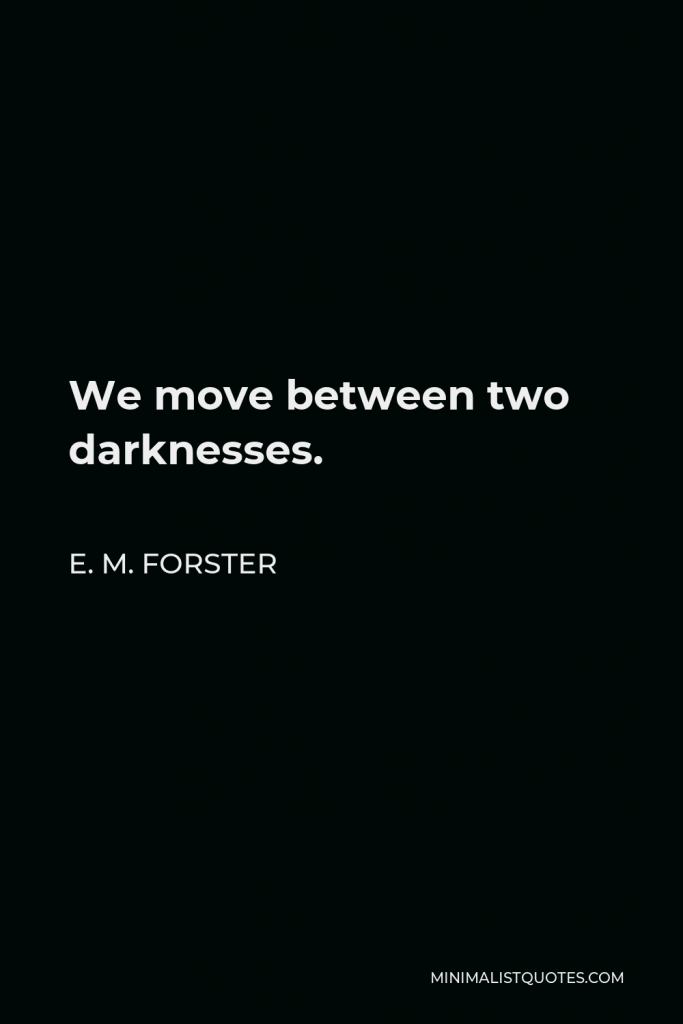

-





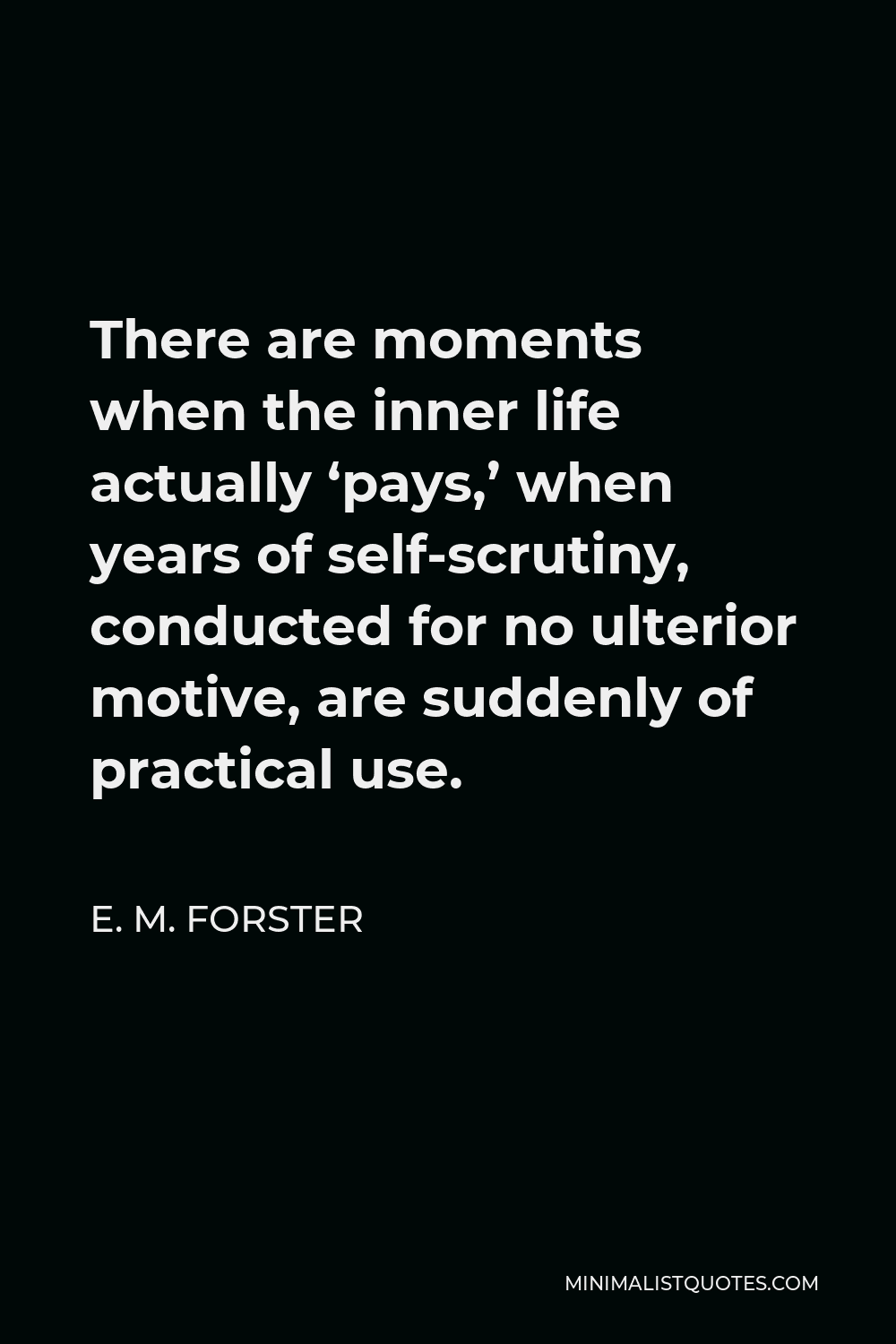
There are moments when the inner life actually ‘pays,’ when years of self-scrutiny, conducted for no ulterior motive, are suddenly of practical use.
E. M. FORSTER -





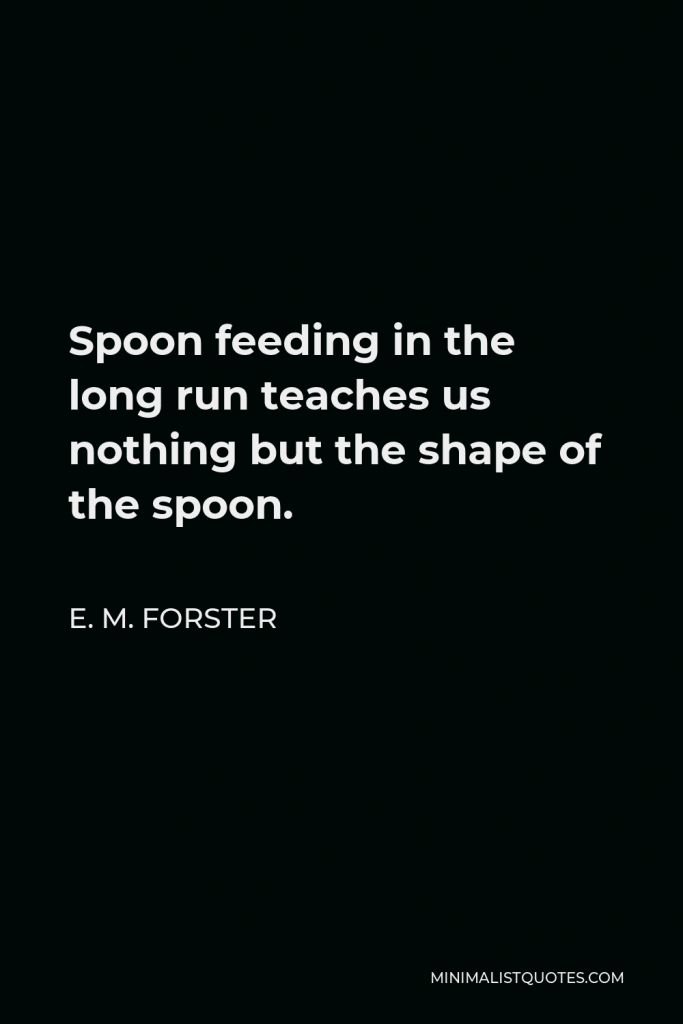

Spoon feeding in the long run teaches us nothing but the shape of the spoon.
E. M. FORSTER -





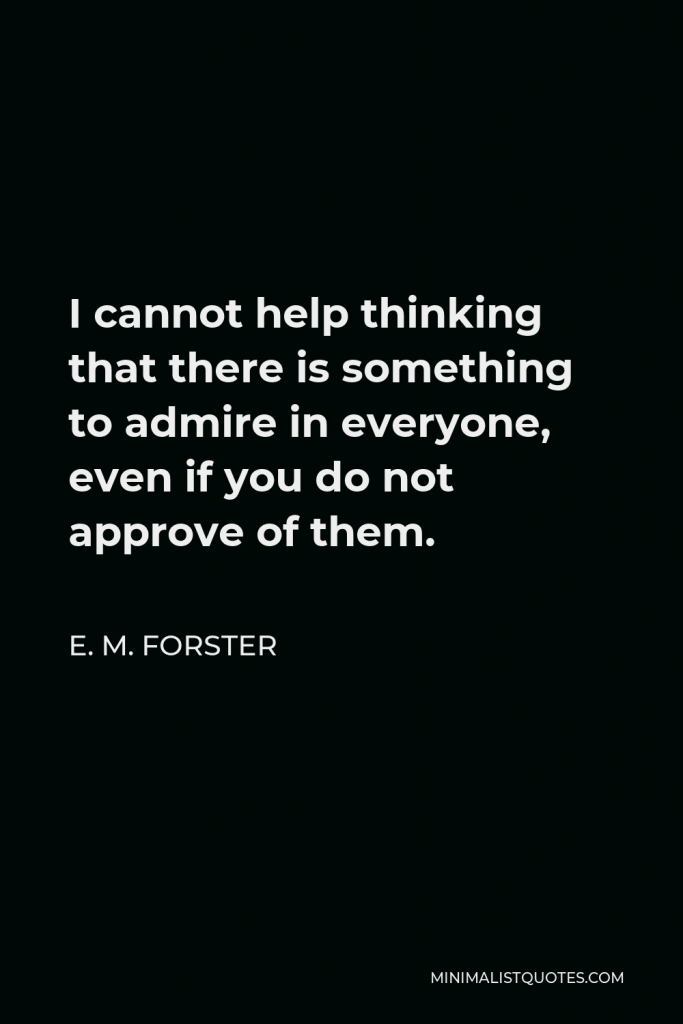

I cannot help thinking that there is something to admire in everyone, even if you do not approve of them.
E. M. FORSTER -





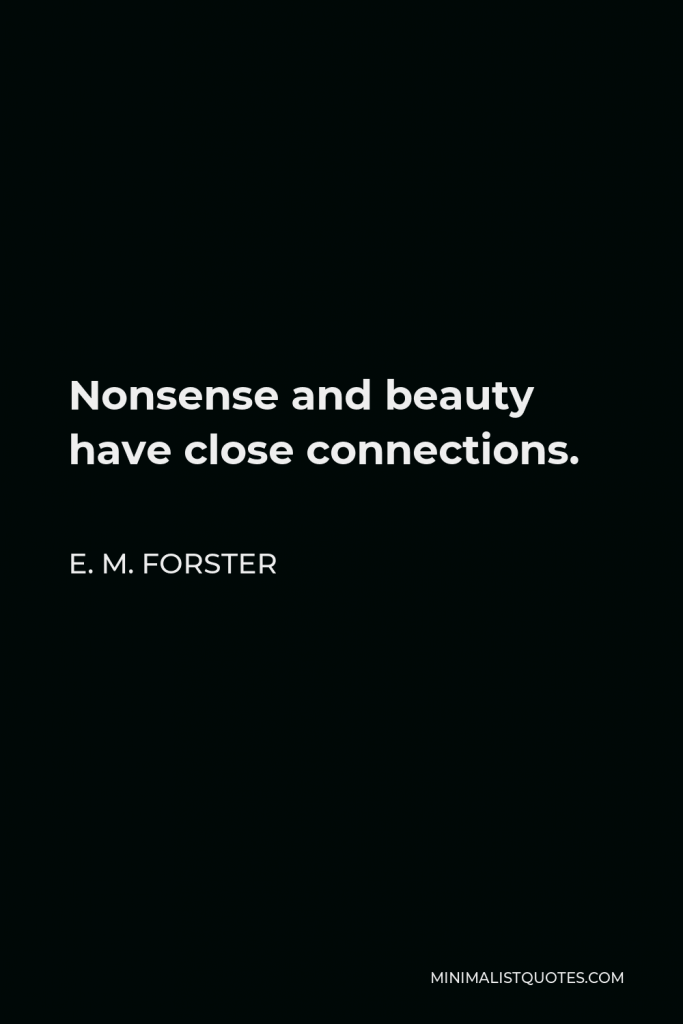

Nonsense and beauty have close connections.
E. M. FORSTER -





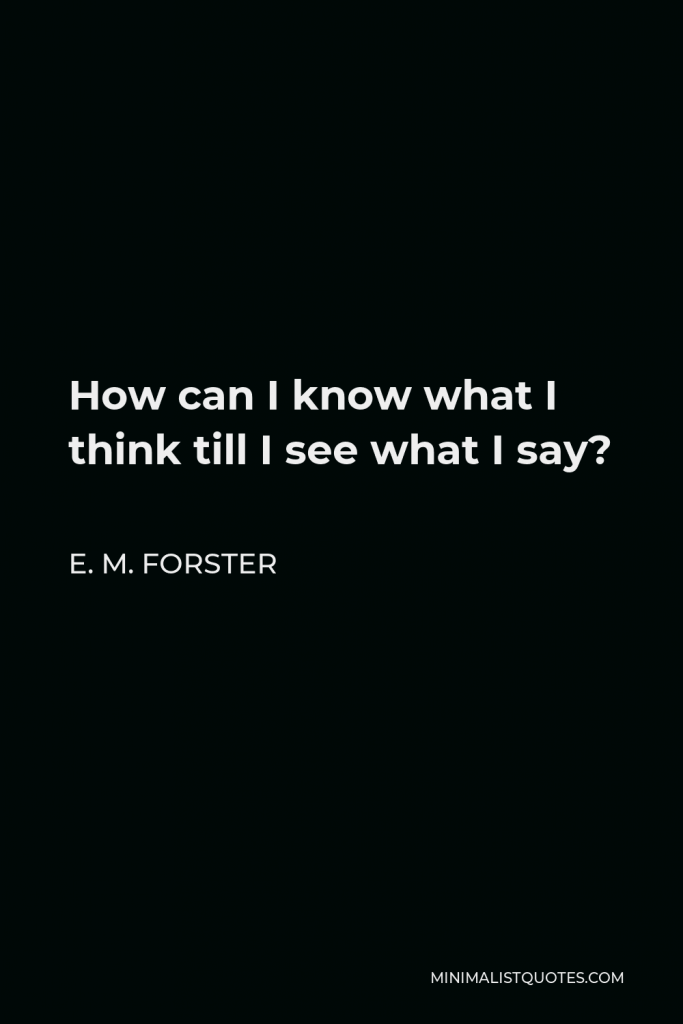

How can I know what I think till I see what I say?
E. M. FORSTER -





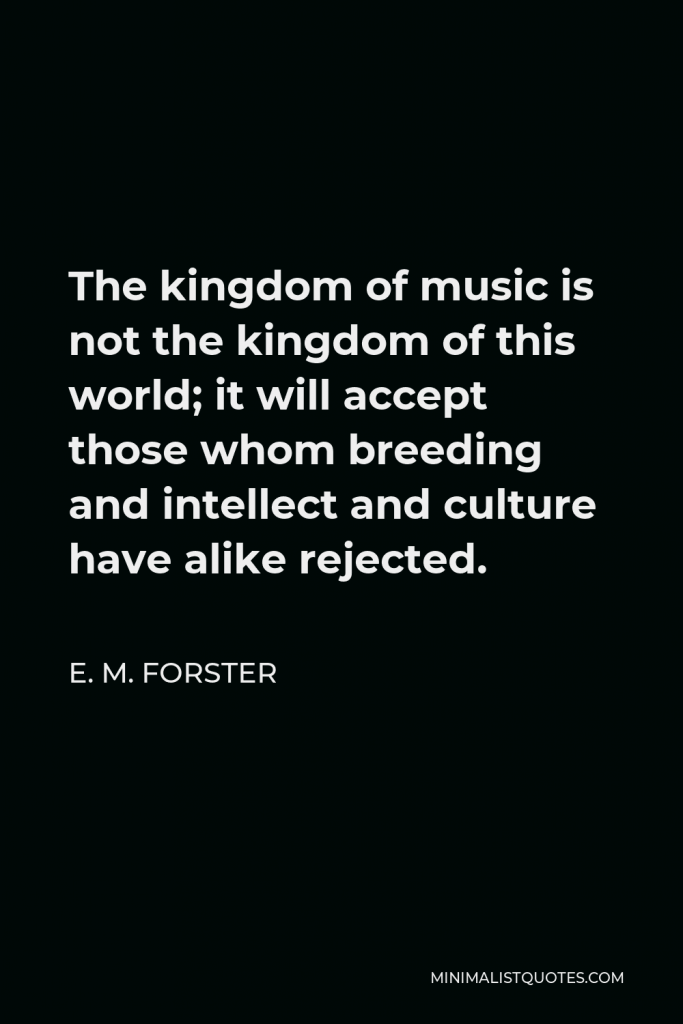

The kingdom of music is not the kingdom of this world; it will accept those whom breeding and intellect and culture have alike rejected.
E. M. FORSTER -





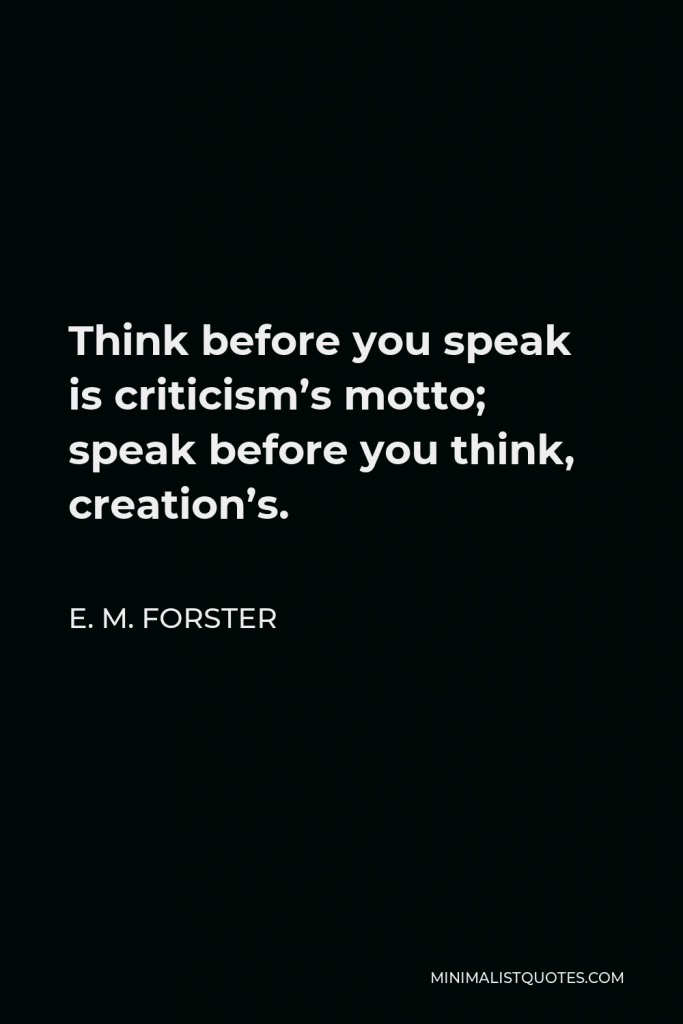

Think before you speak is criticism’s motto; speak before you think, creation’s.
E. M. FORSTER -





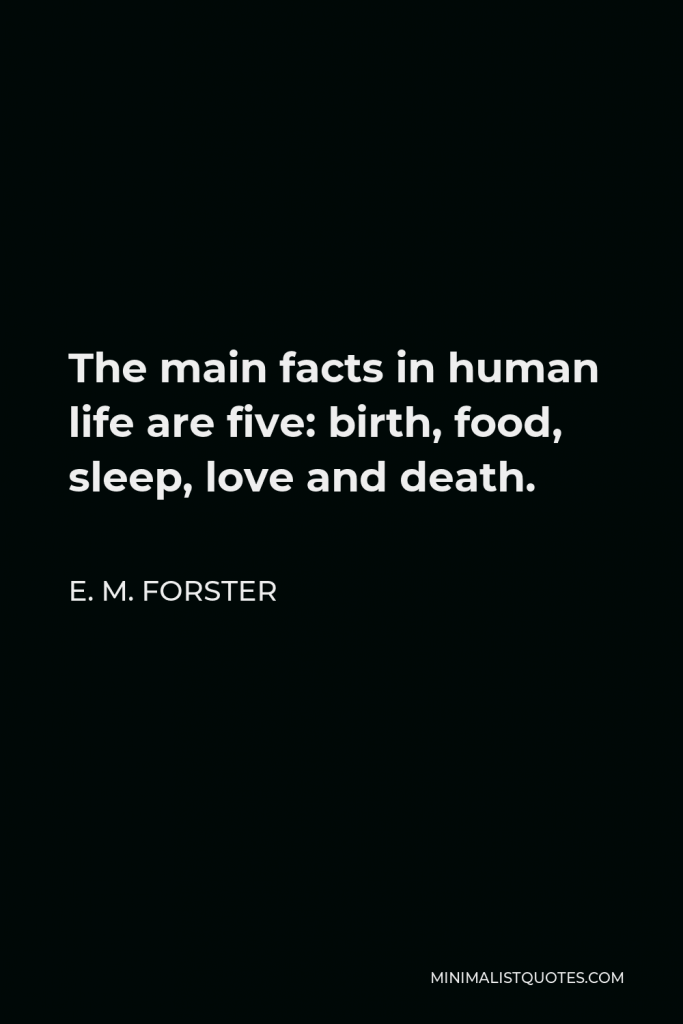

The main facts in human life are five: birth, food, sleep, love and death.
E. M. FORSTER -





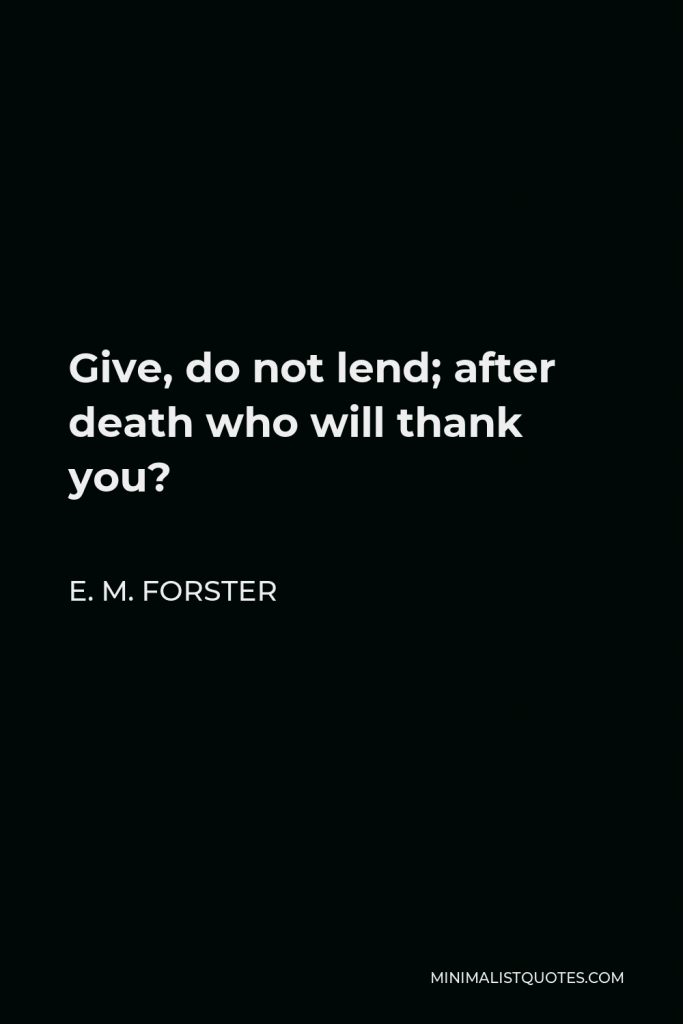

Give, do not lend; after death who will thank you?
E. M. FORSTER -





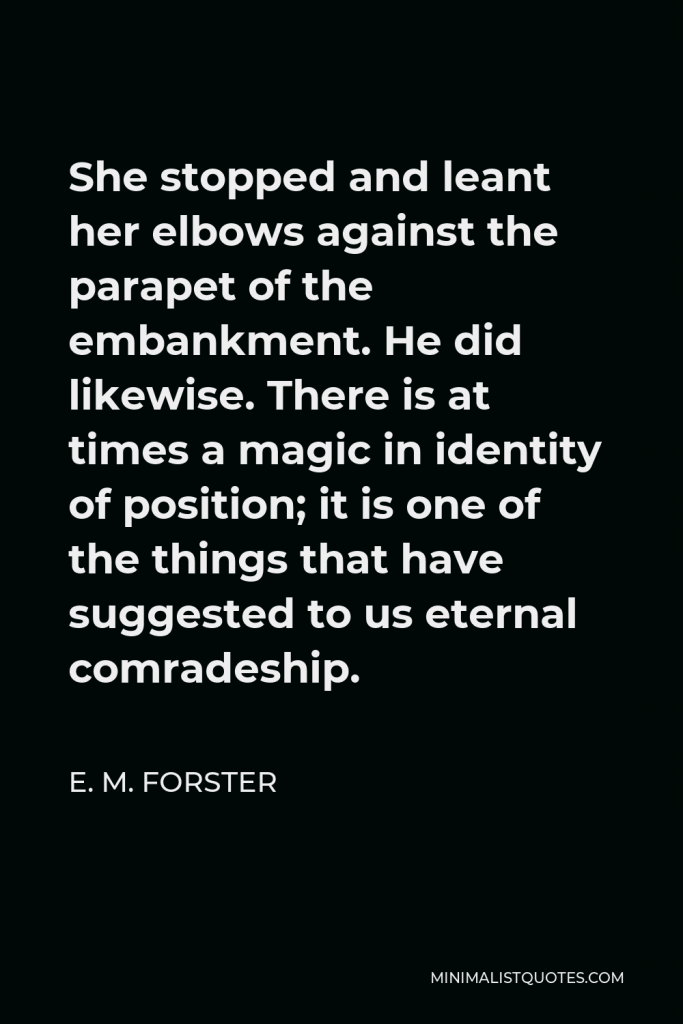

She stopped and leant her elbows against the parapet of the embankment. He did likewise. There is at times a magic in identity of position; it is one of the things that have suggested to us eternal comradeship.
E. M. FORSTER -





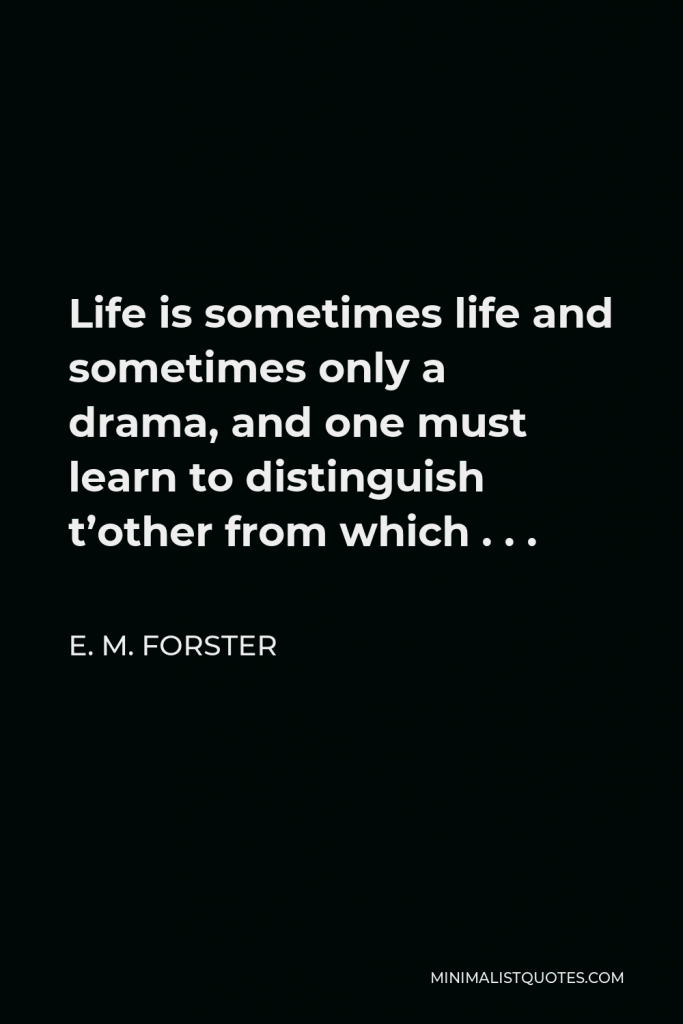

Life is sometimes life and sometimes only a drama, and one must learn to distinguish t’other from which . . .
E. M. FORSTER -





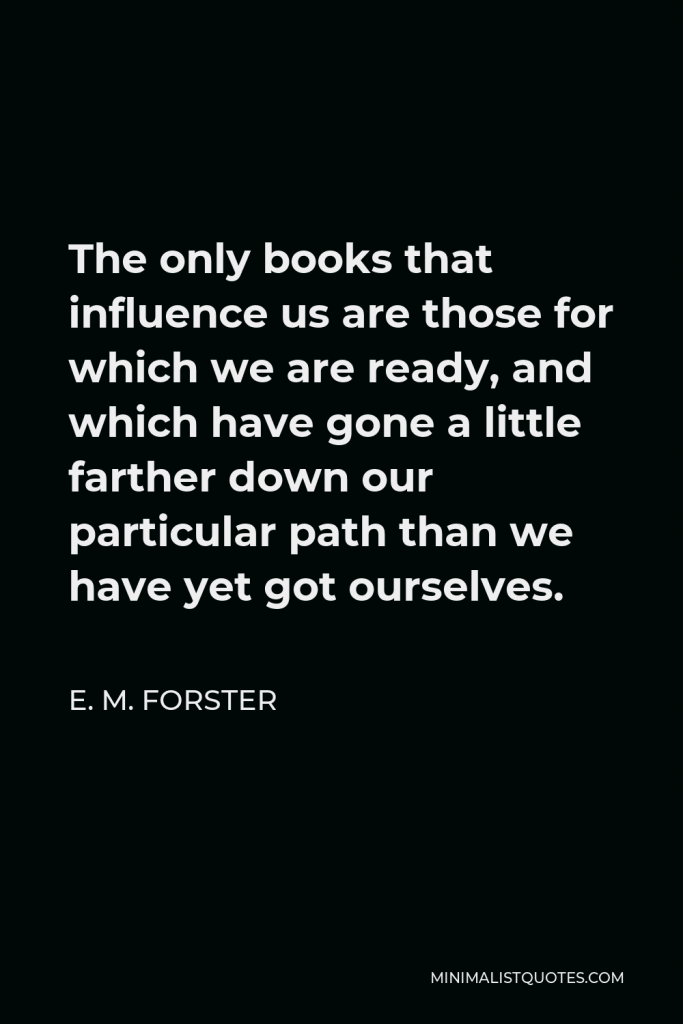

The only books that influence us are those for which we are ready, and which have gone a little farther down our particular path than we have yet got ourselves.
E. M. FORSTER -





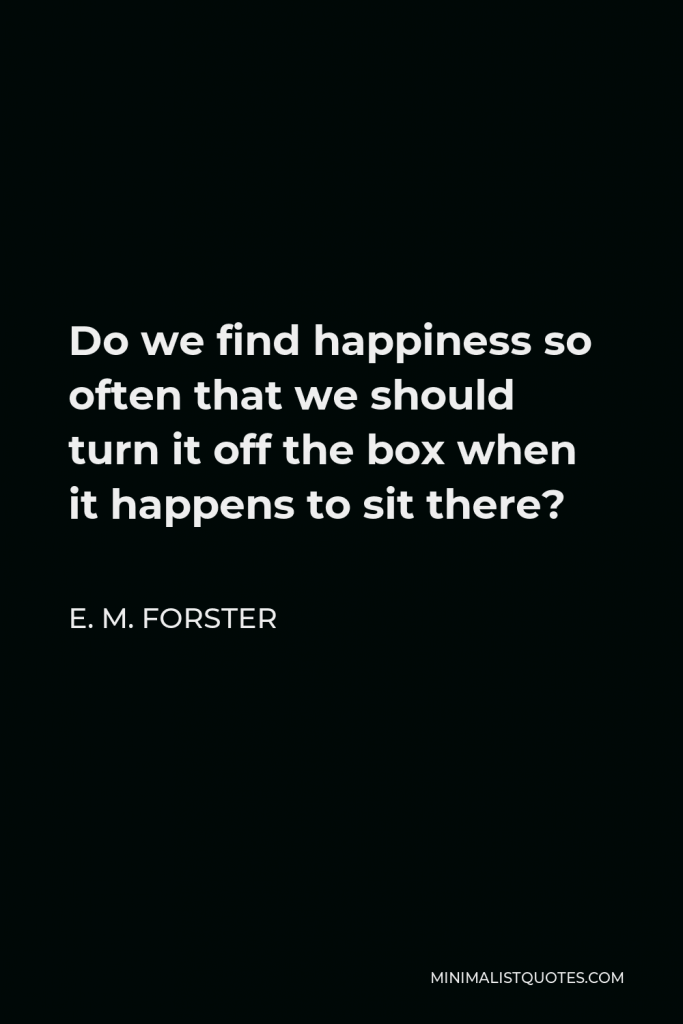

Do we find happiness so often that we should turn it off the box when it happens to sit there?
E. M. FORSTER -





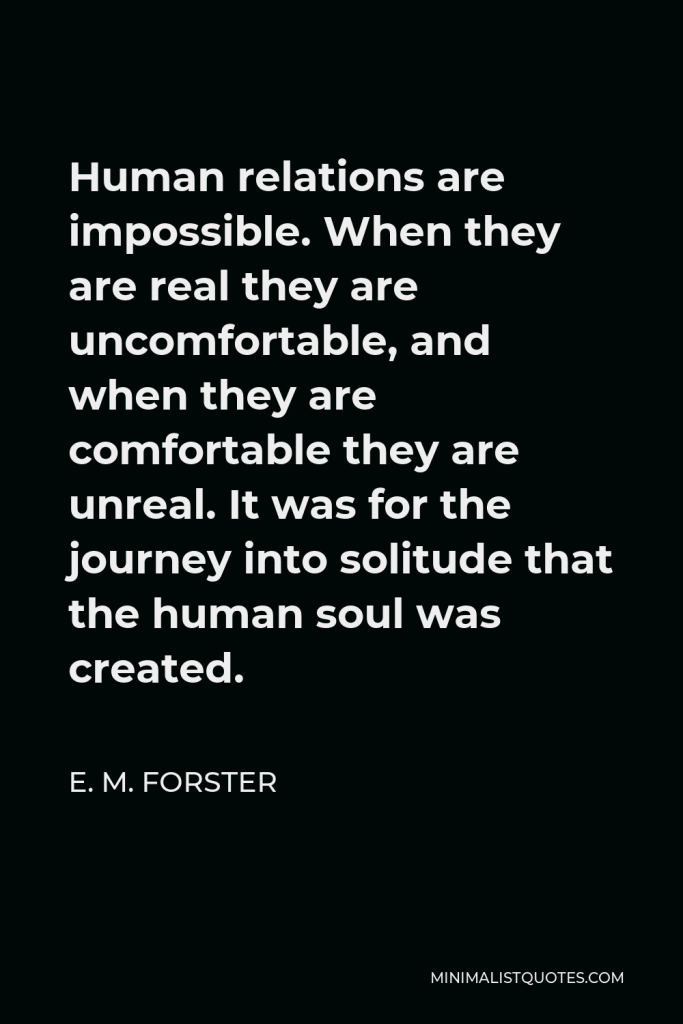

Human relations are impossible. When they are real they are uncomfortable, and when they are comfortable they are unreal. It was for the journey into solitude that the human soul was created.
E. M. FORSTER -





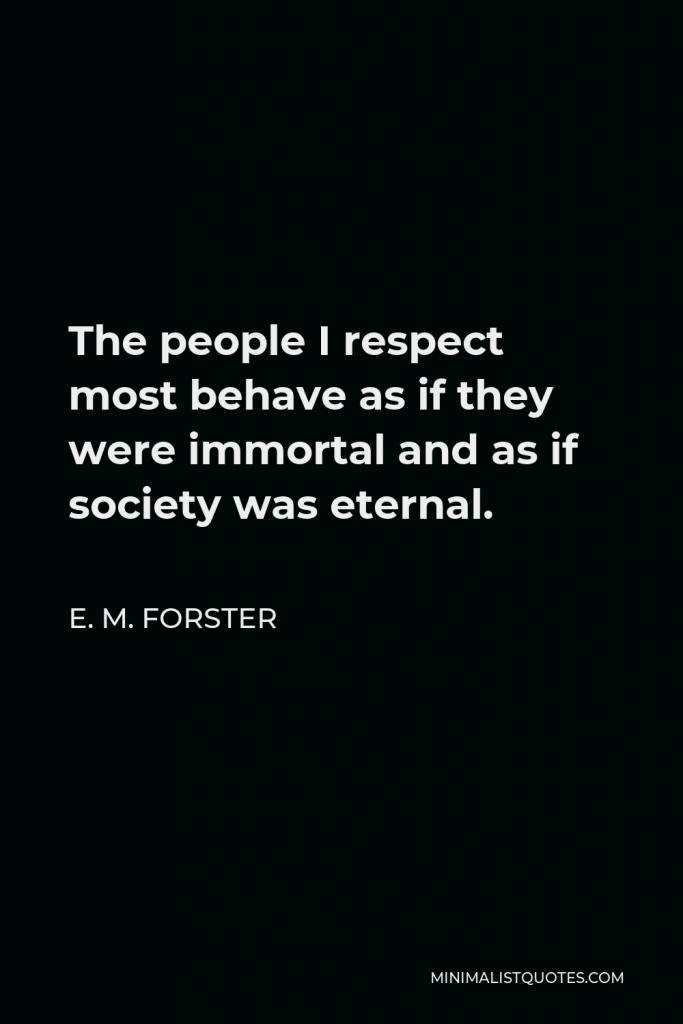

The people I respect most behave as if they were immortal and as if society was eternal.
E. M. FORSTER
